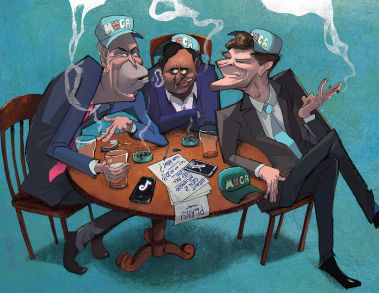How to reform Reform
In early June last year I had a reasonably agreeable meal with a bunch of Reform UK activists at a restaurant in Guisborough – the main town in the seat which I would be contesting for the Social Democratic party, Middlesbrough South and East Cleveland. There were four of them, united primarily by one thing – a visceral loathing of the Conservative party. Beyond that they were basically anti-woke and economically dry, as we used to call it. But all that took second place to the animus against the Tories. I have met pink-haired, nose-ringed, utterly vacuous LGBTQI sociology students who were more kindly disposed to the Conservatives than this




















